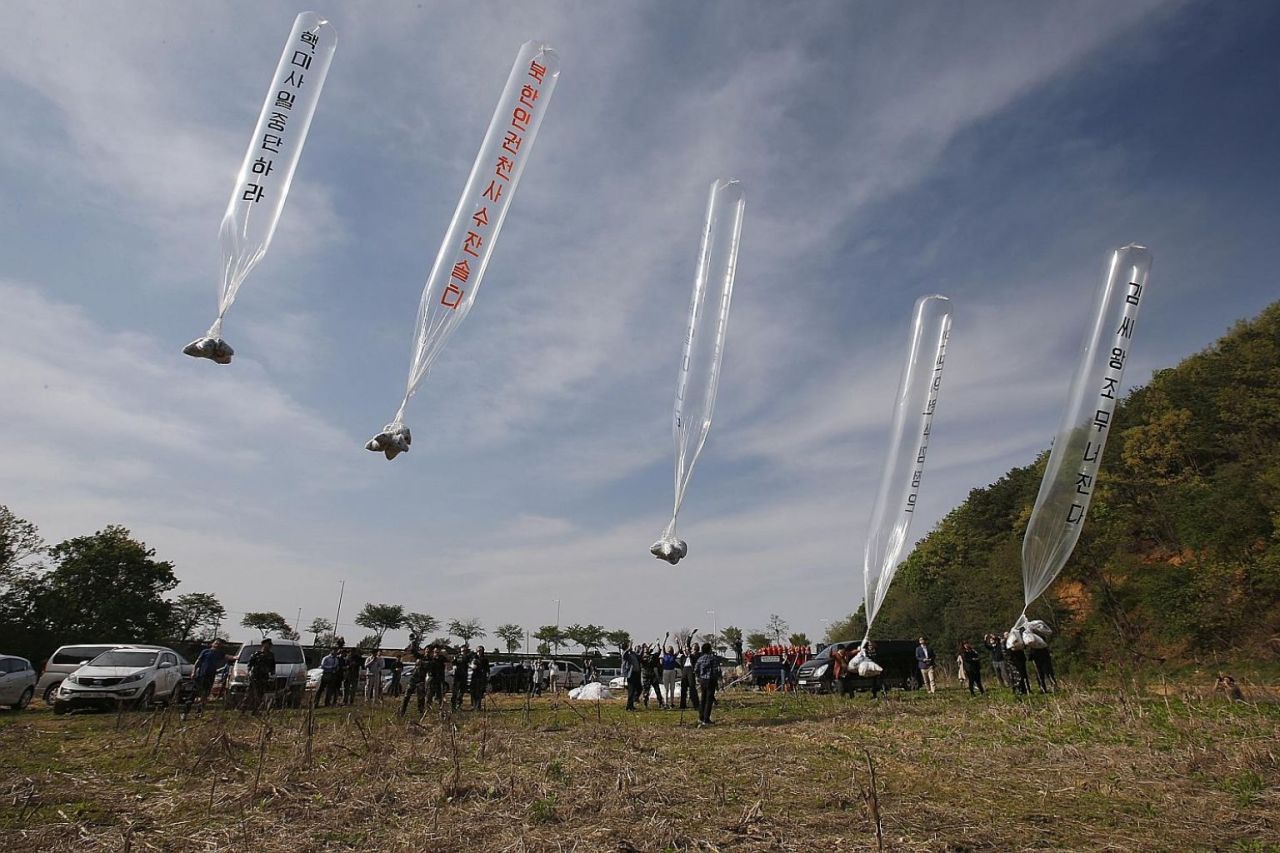US expresses concerns over S. Korean ban on anti-Pyongyang leaflets
By YonhapPublished : Dec. 18, 2020 - 09:14

WASHINGTON -- The US government had expressed concerns about a South Korean bill prohibiting the launch of anti-North Korea leaflets across the border before the South Korean parliament passed the bill this week, a news report said Thursday.
Citing unidentified sources, the Washington Post said Deputy Secretary of State Stephen Biegun had "privately conveyed" the US government's concerns during his trip to Seoul that ended last Friday.
The bill passed Monday by a 187-0 vote in South Korea's unicameral parliament.
The US has since kept silent on the issue, while related questions from Yonhap to the State Department remain unanswered.
Once enacted, the revision to the law on inter-Korean relations will prohibit the launch of anti-Pyongyang leaflets across the border, with violators subject to a maximum prison term of 3 years or a fine of 30 million won ($27,400).
Many critics, including US lawmakers, have expressed concerns, noting the law may undermine the freedom of expression while also cutting off what little access North Korean people have to outside information.
"Freedom of expression is a core democratic value. A bright future for the Korean Peninsula rests on North Korea becoming more like South Korea -- not the other way around," Rep. Michael McCaul (R-TX) said earlier in a released statement, according to the Washington Post.
Rep. Chris Smith (R-NJ) has vowed to have the US government reevaluate South Korea in its upcoming reports on human rights and religious freedom.
Seoul maintains the ban on leafleting is the "least possible measure" it has to take to protect its people, especially those living close to the inter-Korean border.
"This (leafleting) is happening in a very sensitive area -- the most militarized zone in the whole world with people living right next to the border area," Foreign Minister Kang Kyung-wha said Wednesday in an interview with CNN.
"So in an area, highly militarily tense area where anything can go wrong, lead to even bigger clashes, and the people living near the border have been asking that these activities stop for years," she added.
Kang also insisted the revision was completely within the legal provisions of the International Covenant on Civil and Political Rights (ICCPR).
"Freedom of expression, I think, is absolutely vital to human rights, but it's not absolute. It can be limited. According to the ICCPR, we have to (do it) by law, (and) it has to be limited in scope. And it is limited in scope. It is only when these acts pose harm or pose danger to the life and the security of our people," said Kang. (Yonhap)
Citing unidentified sources, the Washington Post said Deputy Secretary of State Stephen Biegun had "privately conveyed" the US government's concerns during his trip to Seoul that ended last Friday.
The bill passed Monday by a 187-0 vote in South Korea's unicameral parliament.
The US has since kept silent on the issue, while related questions from Yonhap to the State Department remain unanswered.
Once enacted, the revision to the law on inter-Korean relations will prohibit the launch of anti-Pyongyang leaflets across the border, with violators subject to a maximum prison term of 3 years or a fine of 30 million won ($27,400).
Many critics, including US lawmakers, have expressed concerns, noting the law may undermine the freedom of expression while also cutting off what little access North Korean people have to outside information.
"Freedom of expression is a core democratic value. A bright future for the Korean Peninsula rests on North Korea becoming more like South Korea -- not the other way around," Rep. Michael McCaul (R-TX) said earlier in a released statement, according to the Washington Post.
Rep. Chris Smith (R-NJ) has vowed to have the US government reevaluate South Korea in its upcoming reports on human rights and religious freedom.
Seoul maintains the ban on leafleting is the "least possible measure" it has to take to protect its people, especially those living close to the inter-Korean border.
"This (leafleting) is happening in a very sensitive area -- the most militarized zone in the whole world with people living right next to the border area," Foreign Minister Kang Kyung-wha said Wednesday in an interview with CNN.
"So in an area, highly militarily tense area where anything can go wrong, lead to even bigger clashes, and the people living near the border have been asking that these activities stop for years," she added.
Kang also insisted the revision was completely within the legal provisions of the International Covenant on Civil and Political Rights (ICCPR).
"Freedom of expression, I think, is absolutely vital to human rights, but it's not absolute. It can be limited. According to the ICCPR, we have to (do it) by law, (and) it has to be limited in scope. And it is limited in scope. It is only when these acts pose harm or pose danger to the life and the security of our people," said Kang. (Yonhap)



![[Exclusive] Korean military set to ban iPhones over 'security' concerns](http://res.heraldm.com/phpwas/restmb_idxmake.php?idx=644&simg=/content/image/2024/04/23/20240423050599_0.jpg&u=20240423183955)

![[Graphic News] 77% of young Koreans still financially dependent](http://res.heraldm.com/phpwas/restmb_idxmake.php?idx=644&simg=/content/image/2024/04/22/20240422050762_0.gif&u=)



![[Pressure points] Leggings in public: Fashion statement or social faux pas?](http://res.heraldm.com/phpwas/restmb_idxmake.php?idx=644&simg=/content/image/2024/04/23/20240423050669_0.jpg&u=)










